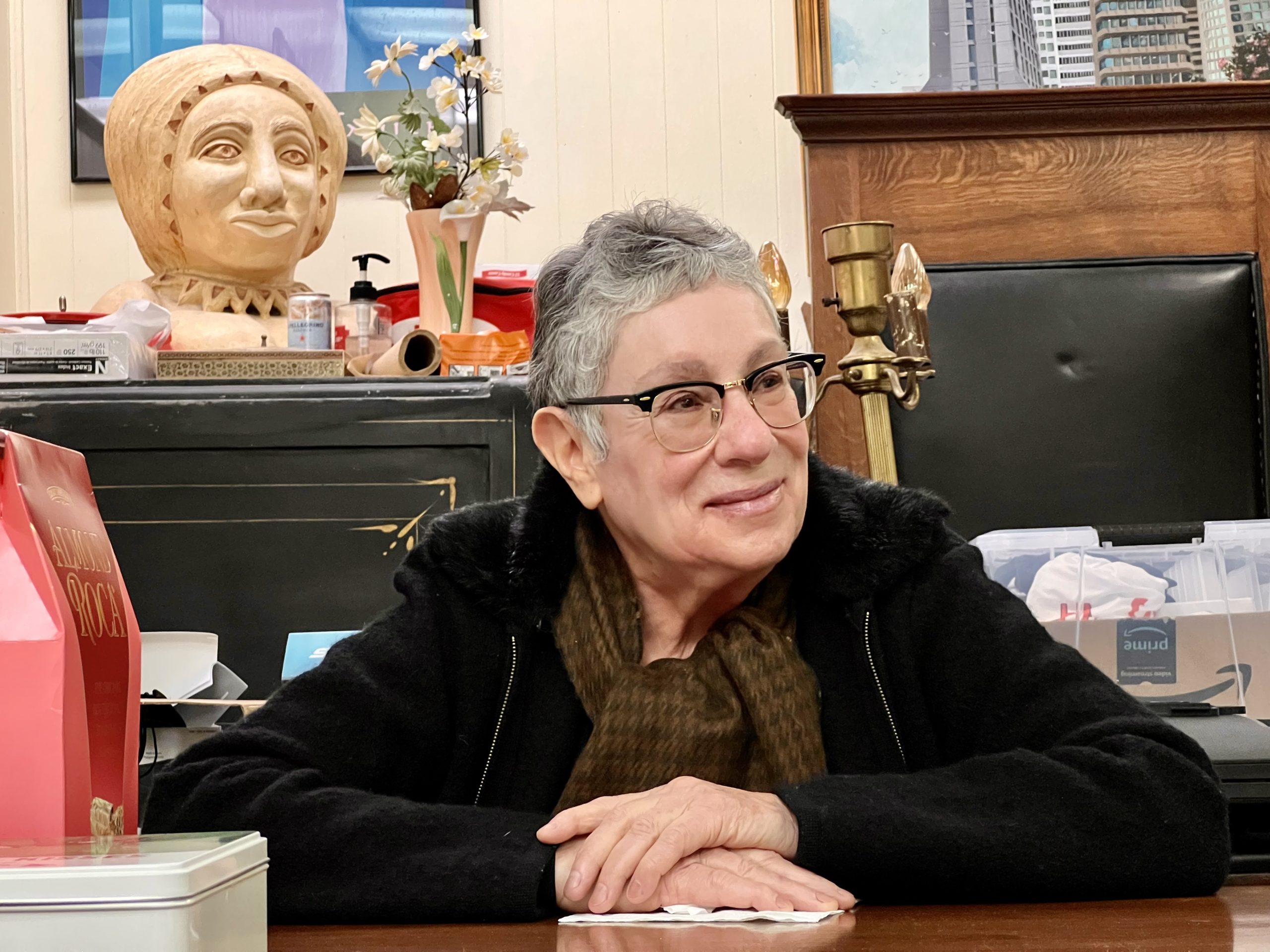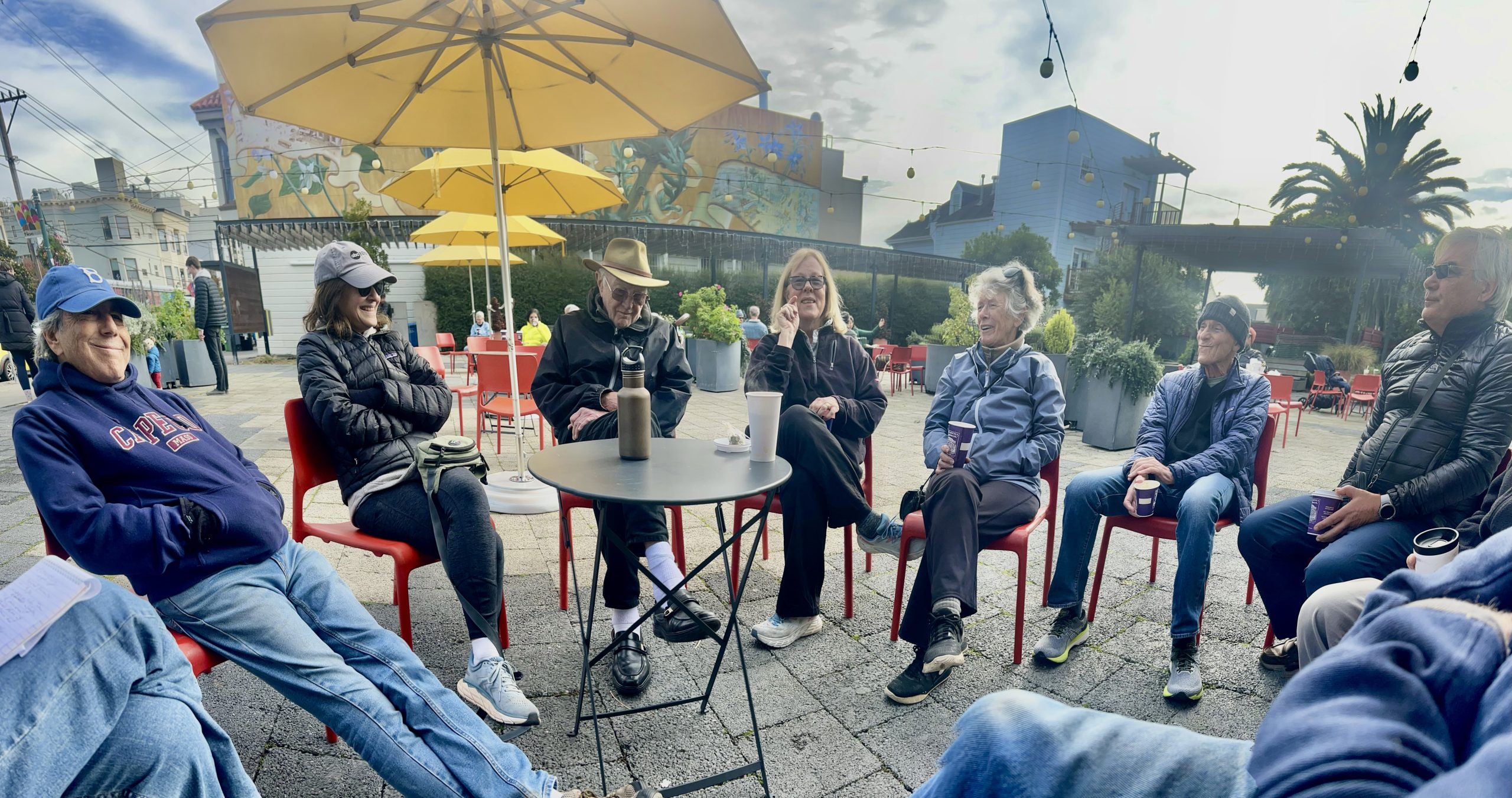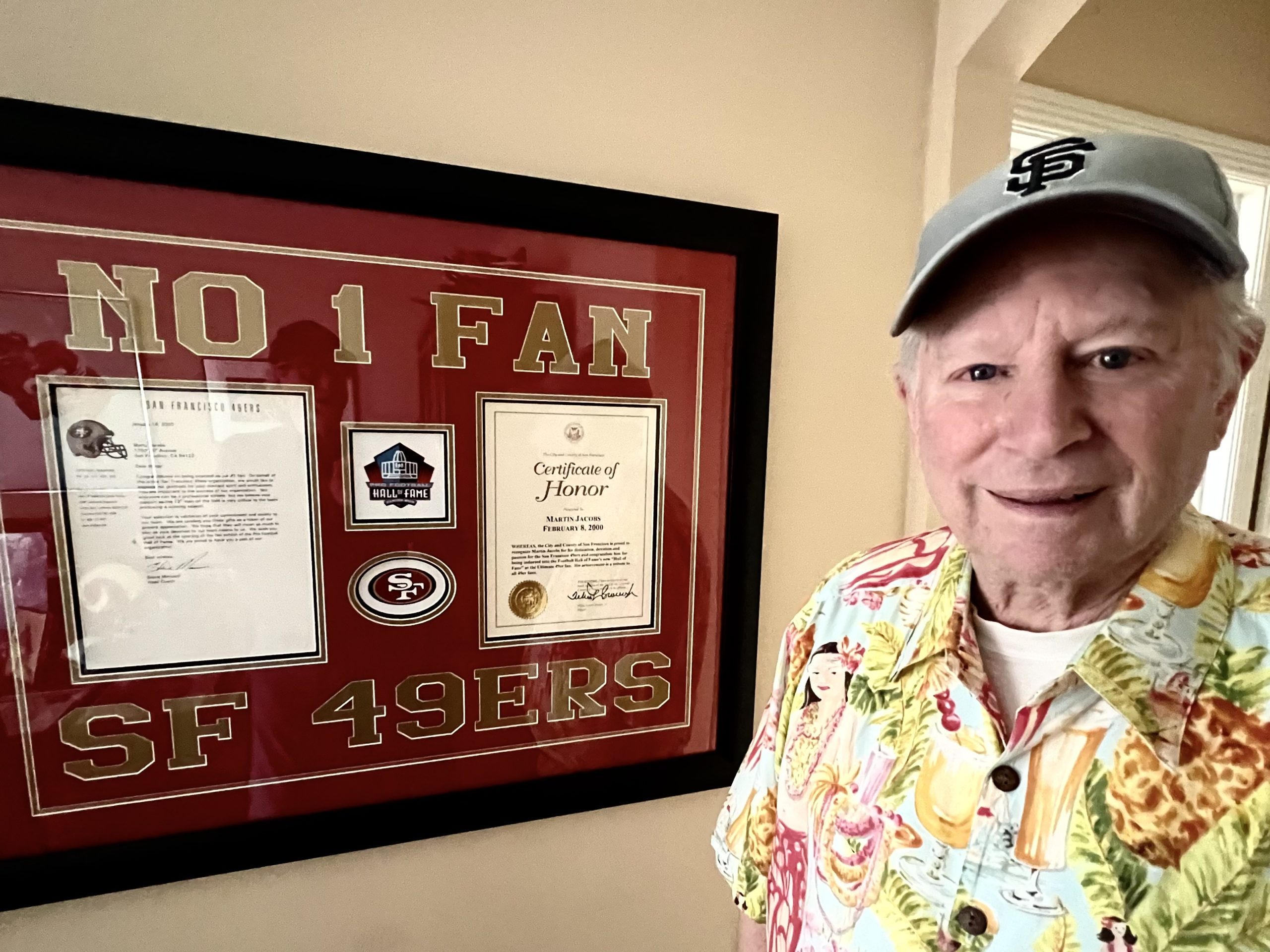Kent State murders jolted student into lifetime of activism – from campus protests to ‘White Night’ riots to queer youth and adult advocacy
Starting college is one of those life-changing events. For Paul Gross, the transformation began three months before he arrived at Kent State University.
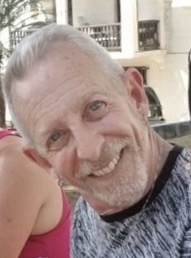
In May 1970, Ohio National Guardsmen, called in to remove thousands of anti-war protesters at a banned anti-war demonstration, fired into a crowd, killing four students and wounding nine. “I was immediately politicized because of those murders,” he said.
It was one of many campus protests across the country, but the deaths shocked the nation, further souring support for the Vietnam War.
When he started his studies, he said, “severe restrictions were put on our freedoms, so I started attending demonstrations. You couldn’t walk down the street with more than two people … and you could be arrested if you tried to read the first amendment out loud on campus.”
The U.S. left Vietnam in 1973, but Gross’ activism was to continue for the next half-century.
While in college, he worked 20 hours a week and volunteered some 50, he said. One of his targets was the school’s program of special education. He wanted to major in the field but was “put off by the ‘negative reinforcers’ taught in the department, such as using vinegar spray on children’s tongues, shock therapy, and giving children drugs like Ritalin.”
Taking on education
Working through the Center for Alternative Lifestyles on campus, Gross compiled a 30-page document listing different organizations that focused on how to change education rather than on how to change kids. He distributed 300 copies to all education majors.

His later activism focused on supporting queer youth and adults. During a 26-year career at Citibank in Oakland, he gave 25 hours a week to various causes, including the Stop AIDS Project. KQED named him An Unsung Hero in 1994 for his work. For several years, he also organized Citibank’s corporate AIDS Walk team.
Man of the family
Gross was the take-charge type even before he became politically active. He was 12 when his parents divorced, and as the oldest boy, he took on adult responsibilities. “I stood in as the man in the family and went to work because there wasn’t enough money for our mom to raise six children,” he said. He sold seeds, mowed lawns, worked underage in a Dairy Queen and had a paper route from three to six a.m.
He had started as a temp at the bank in 1986. By the time he retired in 2012, he was Human Resources Director of Employment Laws and Regulations. “Because I was an organizer and project person who knew how to get things done and was creative,” he said, “Citibank kept promoting me.”
His grades suffered, but he managed to get into college. He continued to support his family. He drove a bus and worked blue-collar jobs in the steel and paper mills of Ohio.
College widened his perspective. “I was able to start seeing my own life for the first time,” he said, “and I was motivated to learn and do well.” He graduated in 1976 with a degree in sociology.
He settled in the Bay Area in 1978. He bartended at Sally Stanford’s Valhalla in Sausalito and flipped burgers at San Francisco’s Hamburger Mary’s but by his second year he got caught up in local events and politics.
An SF blossoming
Dan White had just received a seven-year sentence for killing Mayor George Moscone and Supervisor Harvey Milk. Many thought it too lenient. Gross, watching TV, saw protesters swarming City Hall in what came to be called the “White Night Riots.” “I drove my Chevy panel truck from Marin to City Hall to participate,” he said. “I needed to be with my community who can get angry when injustice occurs.”
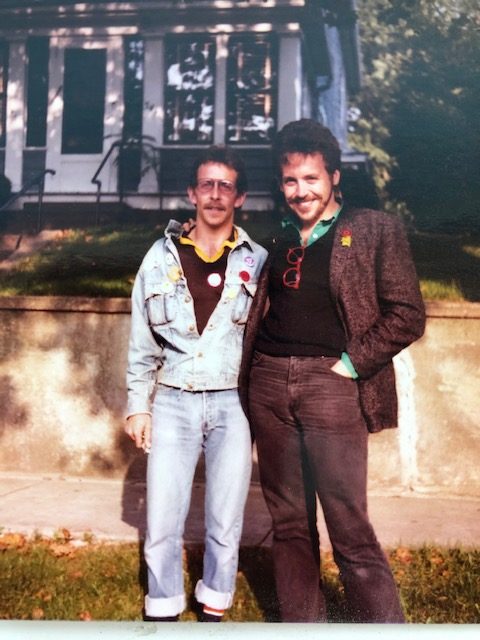
Over the ensuing years, Gross volunteered with many queer youth and adult organizations. He supported queer candidates for public office, including Tom Ammiano, an LGBT rights activist whose 1999, write-in campaign for mayor against Willie Brown forced a run-off election.
He was comfortable with his own sexuality, having come out to his mother in high school. But it was his first love in San Francisco who spurred Gross to dig deeper into his identity and passions, he said. He was wearing his black leather jacket – on the back was written: “Children learn far more from the way they are treated than what they are told” – when he met Tedi Matthews at The Stud, a dance club on Folsom Street.
He soon moved in with Matthews, a charismatic figure, poet, and activist for LGBTQ rights in the U.S. and Latin America, and their home, a storefront on Valencia Street, became a hotbed of activism. “We changed the structure of the Pride Committee to include women as well as men as co-chairs, and we put on a weeklong arts festival, ‘Mainstream Exiles,’ showcasing queer political artists,” Gross said.
A secular spirituality
Gross’s other volunteer work didn’t stop. He worked on preventing child abuse as a counselor for a crisis line in the ’70s, becoming a Big Brother and later foster parent to a three-year-old boy in the ’80s.
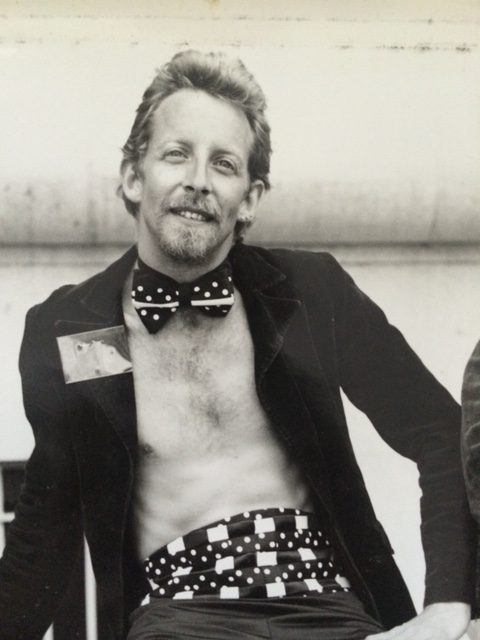
In 1981, he became president of The Sexual Minority Youth Services Coalition, which represented LGBTQ+ youth and young adults abused or forced into prostitution. They also fought to get queer youth out of juvenile hall, where they were sometimes attacked, and into community-based programs. “I would go to the Juvenile Justice Commission meetings and raise all kind of hell,” he said.
When his relationship with Matthews ended, Gross became more focused on the Radical Faerie movement, a now worldwide network of gay men that grew out of the ’70s sexual revolution. It rejects commercialism and emphasizes sustainability, environmentalism and non-institutional spirituality.
“For me, queer meant more than having sex with people of the same gender,” he said. “It became a way for me to define myself through secular spirituality.”
After retiring, Gross helped start two nonprofits under that philosophical umbrella.
Calamus – a word taken from a cluster of Walt Whitman poems celebrating the manly love of comrades – was a program to demonstrate “it was OK for men to hold sensitivity,” he said. They put on workshops, yearly fashion shows, showcased artists, held snuggle parties and raised money for other queer organizations in the former Tower Records building on Columbus Avenue.
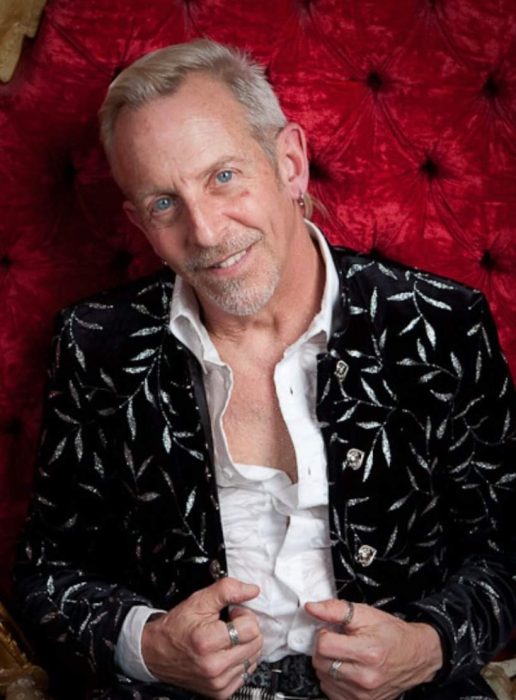
Wanting to expand, Gross and a friend from Calamus started another nonprofit that provided programs for the Groundswell Institute LLC, an intentional community in Mendocino County. As a board member then president, Gross helped create workshops and developed data systems and data bases so attendees could book online for lodging and programs. “We ran some great programs for two years, and no one was turned away for lack of funds,” he said.
He ended his volunteer work in 2017. He’s led a more “subdued life” since then, he said. Now, at 70, he’s concentrating on taking care of himself, comforting friends, and helping support his father’s second wife.
He worries about the growing movement to overturn so many gay rights. “The beehive was violently shaken by the Orange Monster #45.” Yet he holds hope in “the generations after me who came out and allied with straight kids and took our queer activism to the next level.
“I do believe our work laid some of the groundwork to demystify queerness as well as broaden our rights,” he said, but he fears a rough road ahead. “The government and many religions want us to be silenced and hidden again, but the genie is out of the bottle.
“We will be tested.”



